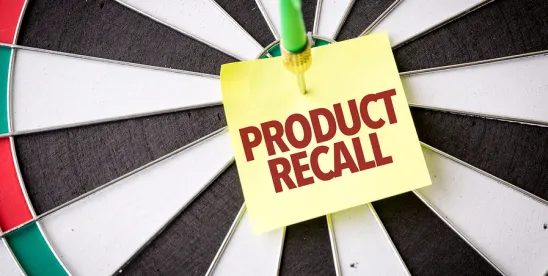The CPSC (by a 3-1 vote) recently filed an administrative complaint against Amazon.com, Inc. (“Amazon”) seeking to force the characterization of Amazon as a “distributor” of products under the Consumer Product Safety Act. If the CPSC prevails on that characterization, Amazon would become responsible under the CPSA for recalling potentially hazard products sold via its “fulfilled by Amazon” program. Although Amazon has engaged in recalls on what it has characterized as a voluntary basis, it has not conceded CPSC authority over it as a distributor. The Amazon complaint that tees this issue up for judicial resolution involves carbon monoxide detectors that fail to alert, children’s pajamas that do not meet flammability requirements, and hair dryers without required water immersion protection devices. Amazon has stopped selling some of these products, notified consumers who purchased the products about the potential hazards, and offered refunds via Amazon gift cards. The CPSC views these steps as insufficient and aims to force Amazon to issue recalls and destroy the returned products. Under the CPSA, a “distributor” is “a person to whom a consumer product is delivered or sold for purposes of distribution in commerce.” 15 U.S.C. § 2052(a)(8). Under the “fulfilled by Amazon” program, merchants keep title to their products but store them at Amazon fulfillment centers, where Amazon packs and ships the products for a fee. Although the CPSC views Amazon as a “distributor,” Amazon argues it is merely an intermediary for other retailers because it does not hold title to the products and therefore cannot be held liable for them.
The CPSC recently focused its regulatory efforts on deadly defects associated with elevators. Residential elevators manufactured by Thyssenkrupp Access Corp. are allegedly defective due to an excessive gap between the elevator doors, which poses a risk to young children. This gap has been associated with a two-year-old’s death in 2017, a three-year-old’s permanent disablement in 2010, and a four-year-old’s hospitalization after a crush injury in 2019. Thyssenkrupp refused to conduct a voluntary recall of the elevators, prompting the CPSC (by a 3-1 vote) to file an administrative complaint against the manufacturer seeking to declare the residential elevators a “substantial product hazard” under the CPSA.
Acting CPSC Chair Robert Adler also issued a letter to vacation rental platforms urging them to act to protect young children from allegedly defective elevators in vacation homes. The letter does not name any elevator distributors or manufacturers but notes that a seven-year-old’s death this month from a residential elevator in a vacation home prompted his letter. Adler asked the vacation rental platforms to (a) notify all renters who use their platforms about the potential hazard; (b) require all hosts who use their platforms to lock or disable residential elevators until they can be properly inspected; and (c) require such inspections for any new hosts who use their platforms to list vacation homes going forward.
This month, the CPSC and Waupaca Elevator Company re-announced a 2018 recall for defective elevators after 15 reports of the elevator cab falling unexpectedly, resulting in a death. The elevators should be placed out of service until a local dealer can install an overspeed safety device to address the defect.
Total Recalls: 22
Hazards: Fire/Burn/Shock (9); Violation of Federal Standard (4); Choke (2); Tip-Over (2); Fall (1); Crash (1); Crush (1); Laceration (1); Skin Irritation (1)






 />i
/>i
